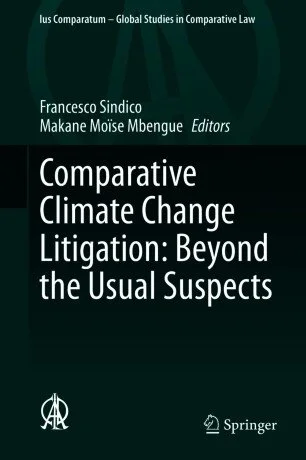In India’s climate law, focus more on process, less on outcomes
This is the second of a two-part series proposing a new framework for an Indian climate law. The first part is available here.
Climate laws are popularly understood as instruments for the imposition of emissions caps. There is, however, an alternative model, sometimes called a framework law, which needn’t decree numerical targets, but acts as an overarching mechanism to establish a unifying basis for climate policy. The framework law’s main purpose is to enable, through cross-sectoral and institutional coordination, a green transformation of the economy.
As I discuss in an earlier article, in developing contexts, the latter is often more efficient and effective than imposed carbon caps due to its bottom-up and all-of-society approach. Broadly speaking, a developing nation is best served by a climate law that bases itself on developmental utility rather than rights or outcome duties, stipulates procedural duties, injects climate consciousness into short- and long-term plans and annual budgets, and institutes a new body dedicated to facilitating a low-carbon transformation.
However, the assumption that this trump card is somehow sufficient, with or without a climate law, to protect Indian citizens from the dire climate consequences spelt out, for instance, in the latest Intergovernmental Panel on Climate Change report, is dangerous. Any protections promised by a climate right might largely be illusory. Without a corresponding duty and means of accountability, a right is an empty cipher.
That is, in the absence of a duty to restrict emissions to a certain numerical limit by a specified date — in other words, an outcome duty — the declaration of a right alone guarantees little actual protection.
However, it is not clear that an outcome duty will provide that protection. Given India’s developing context, such a duty might eventually prove unattainable or insufficient, depending on its onerousness or leniency. Also, in the event that a target is unlikely to be reached by a stipulated deadline, any action brought before the date might be deemed by the courts as premature. Yet, it is unclear whether an outcome duty continues to have legal meaning after the deadline has passed, given that the date of completion is part of its definition. The Irish parliament, for similar reasons, declared that its Climate Change Response Bill — specifically, its outcome duty — “shall not be justiciable”.
Instead, framework laws can offer an alternative approach — to maximise utility (ie, maximise the sustainability of development) without promoting rights or stipulating outcomes. South Korea’s Low Carbon, Green Growth Act, the most comprehensive framework law in existence, declares, rather unexpectedly, its main purpose to be the development of the “national economy” — this will be achieved, it says, by promoting low-carbon, green growth through the efficient restructuring of markets and institutions to favour green technologies and industries.
To maximise utility, framework laws generally avoid imposing outcome duties and focus instead on what can be termed “procedural duties”. These duties are designed to integrate climate concerns into the routine working of government and industry. The Peruvian framework law, for instance, pronounces a litany of commandments such as “coordinate, articulate, design, report, monitor, evaluate and disseminate” but does not mention “achieve”. Procedural duties are generally demanded of an array of ministries and departments – often, energy, land-use, building, transportation, and waste are mentioned by name. They aim to establish processes that diffuse climate responsibility across various sectors and levels of governance.
Framework laws implicate the State as a whole in the fight against the climate crisis, often by folding the issue into the remit of planning and finance commissions. The “integration principle” of the Peruvian law demands the assimilation of climate into the National System of Strategic Planning. The South African Climate Change Bill, on the other hand, requires the inclusion of a climate report in the budget bill to ensure funding for green projects. Even provincial departments are directed (with financial incentives) in the Kenyan and South Korean laws to harmonise local projects with national climate strategies.
Reanimating the atrophying institutions and dusty communication channels of environmental governance is best achieved through well-designed procedural duties. But the complex tasks crucial to large-scale low-carbon transformation — coordination, consensus-building, and strategy-setting — almost always necessitate the institution of a new nodal climate body. In framework laws, these bodies are usually tasked with advising the decision-making bodies, providing direction for short- and long-term plans, and mainstreaming the goals of the act. Together with procedural duties, the climate body creates a robust framework for realising the letter of the law.
The climate crisis, approached in the right spirit, may thus not be debilitating but an opportunity for better modes of development and governance. A comprehensive climate law with a green vision can serve as the definitive mechanism whereby India’s future is secured in the decades to come.
Originally published in Hindustan Times on August 25, 2021.
Environmentality is a collection of ideas, perspectives, and commentary by researchers at the Initiative on Climate, Energy and Environment, Centre for Policy Research, New Delhi. Views and opinions expressed in this blog are solely those of the authors. They do not represent institutional views.





A comprehensive climate law with a green vision can serve as the definitive mechanism whereby India’s future is secured in the decades to come.